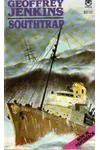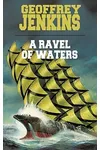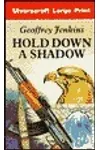Picture a South African storyteller who spun tales of high seas and Cold War intrigue, captivating readers with adventures that rivaled James Bond—meet Geoffrey Jenkins! Born in 1920, this journalist-turned-novelist blended his love for African landscapes with pulse-pounding thrillers, earning praise from none other than Ian Fleming himself. From his debut bestseller to a near-miss with the 007 franchise, Jenkins’s stories remain timeless treasures.
The Making of Geoffrey Jenkins
Geoffrey Ernest Jenkins was born on June 16, 1920, in either Port Elizabeth or Pretoria, South Africa, to editor Ernest Jenkins and Daisy Jenkins. A prodigy, he published A Century of History at 17, earning a special eulogy from General Jan Smuts. His journalistic career took off with the Lord Kemsley Commonwealth Scholarship, landing him on Fleet Street as a World War II war correspondent. There, he forged a friendship with Ian Fleming, whose endorsement later boosted Jenkins’s literary career.
After the war, Jenkins settled in Rhodesia (now Zimbabwe), married author Eve Palmer, and worked as a reporter for The Star in Johannesburg. His experiences in journalism and love for the sea shaped his transition to fiction, where he crafted stories that married historical depth with modern suspense.
Geoffrey Jenkins’s Unforgettable Stories
Jenkins’s debut, A Twist of Sand (1959), set the tone for his career. This gripping tale of a former naval officer navigating treacherous African coasts became a bestseller, translated into 23 languages and adapted into a 1968 film starring Richard Johnson. Its vivid descriptions of shipwrecks and tidal currents showcased Jenkins’s knack for blending geography with drama.
Other notable works include Hunter-Killer (1966), a sequel to his debut, where protagonist Geoffrey Peace fakes his death to unravel a maritime mystery, and Scend of the Sea (1971), a haunting novel about a missing passenger liner and an airliner lost in the same stormy South African waters. A Bridge of Magpies (1974) dives into Cold War espionage, following a navy captain turned cargo shipper entangled in international intrigue. Jenkins’s style—marked by meticulous research, vivid settings, and relentless pacing—earned him comparisons to Fleming and cemented his place in the thriller genre.
His collaboration with Eve Palmer on non-fiction, like the three-volume Trees of Southern Africa (1972), revealed his versatility. Their travel book, The Companion Guide to South Africa (1978), further showcased his ability to weave history and personal commentary into compelling narratives.
Why Geoffrey Jenkins Matters
Jenkins’s thrillers did more than entertain—they brought South Africa’s rugged beauty and complex history to a global audience. His works, often set against the backdrop of colonial and Cold War tensions, offered readers a window into a region rarely explored in mainstream fiction. His friendship with Fleming and the unreleased James Bond novel Per Fine Ounce (rejected by Glidrose in 1966) highlight his potential to shape the spy genre further.
With over five million copies sold across 23 languages, Jenkins’s legacy endures through readers who crave adventure and authenticity. His ability to craft heroes like Geoffrey Peace, who tackled impossible odds with grit and cunning, keeps his stories relevant for modern thriller fans.
- Born: June 16, 1920, South Africa
- Key Works: A Twist of Sand, Hunter-Killer, Scend of the Sea, A Bridge of Magpies
- Notable Connection: Friend of Ian Fleming
Snag A Twist of Sand and dive into Geoffrey Jenkins’s thrilling world of adventure!















